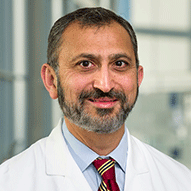Dallas
214-456-6040
Fax: 214-456-6320
Plano
469-497-2501
Fax: 469-497-2507
Park Cities
469-488-7000
Fax: 469-488-7001
214-456-6040
Fax: 214-456-6320
469-497-2501
Fax: 469-497-2507
469-488-7000
Fax: 469-488-7001
Tumors develop and behave differently in children and adults, and cancer is rare in children and adolescents. Tumors arising in the pancreas are extremely rare in children. You will most likely need to consult a specialist.
Malignant pancreatic tumors, particularly the more common carcinomas, seldom secrete hormones. If the tumor releases insulin, it can cause the child to show symptoms such as weakness, fatigue and hypoglycemia. Carcinomas and pancreatoblastomas can cause an abdominal mass, pain and signs of wasting. A child might have elevated alpha-fetoprotein levels.
Most diagnoses are made by biopsy and samples are obtained using laparotomy or a minimally invasive surgery, such as laparoscopy. Diagnosing and treating pancreatic tumors can be complicated by the organ’s location in the abdomen.
Our team includes advanced practice nurses, psychosocial staff and child life specialists to support patients diagnosed with pancreatic tumors and assist their families.
Surgery to resect the tumor usually involves removal of the pancreas and duodenum or a portion of the pancreas. Complete tumor resection is key to a child’s long-term survival.
Postoperative chemotherapy may be used for localized or metastatic carcinoma of the pancreas.
The effectiveness of radiation therapy for children with pancreatic tumors is unknown.








